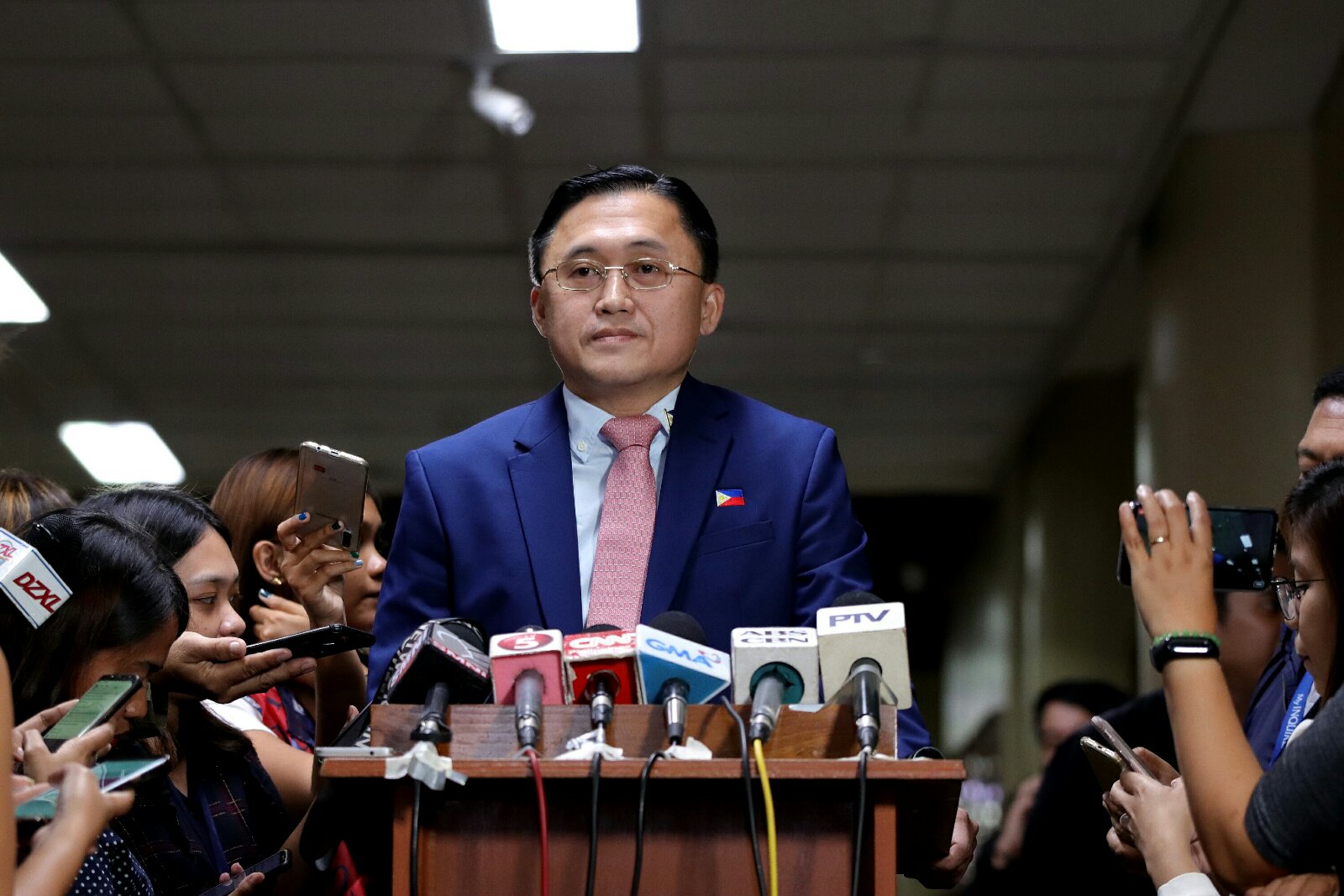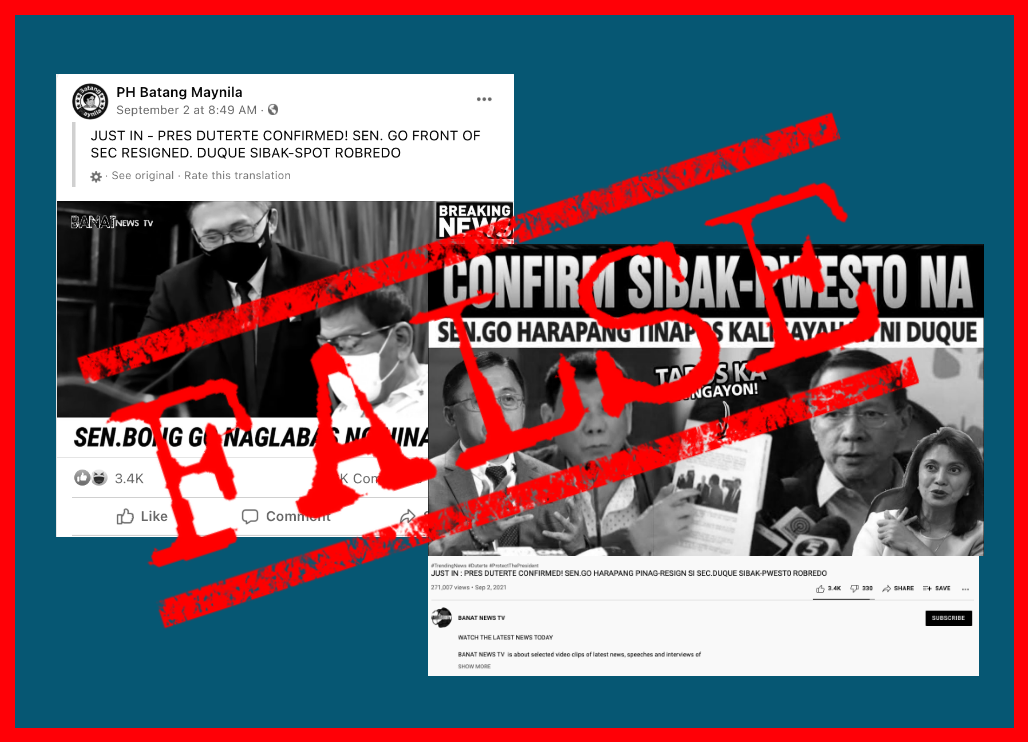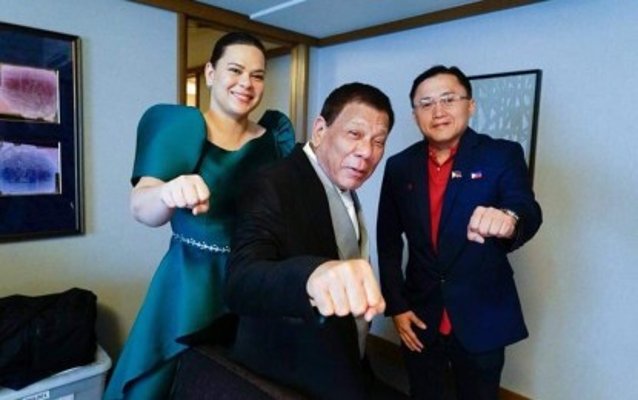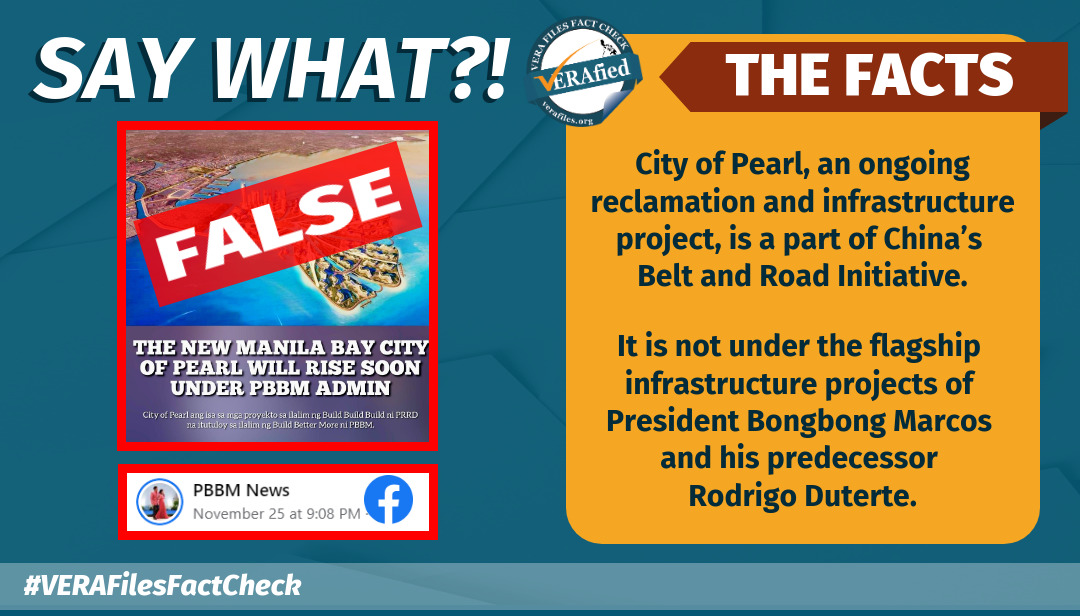Sen. Christopher Lawrence “Bong” Go’s claim that the number of drug lords in the Philippines went down under the leadership of President Rodrigo Duterte has no basis.
STATEMENT
In a Nov. 6 statement, Go “welcomed” Vice President Leni Robredo’s decision to accept Duterte’s offer to “lead the government’s anti-illegal drug efforts.”
He then said:
“Ilang Presidente na ba ang dumaan? Nabawasan ba ang drug lord? Nabawasan ba ang droga? Lalong dumami. Ngayon lang po ito nabawasan nang panahon ni Pangulong Duterte
(How many presidents have we had? Did the number of drug lords decrease? Did drug [use] decrease? They have further increased [in the past administrations]. It is only now during President Duterte’s term that they have gone down).”
Source: Senate of the Philippines, Bong Go welcomes Robredo’s acceptance of drug czar post, Nov. 6, 2019
FACT
It is not clear where Go based his claim; neither the Dangerous Drugs Board (DDB) nor the Philippine Drug Enforcement Agency (PDEA) keeps an official list of “drug lords” in the country.
The DDB — the country’s policy-making and strategy formulating body on drug prevention and control — in its latest survey on the nature and extent of drug use in the Philippines, released in 2016, mentioned the term “drug lord” only once: when it analyzed the efficiency of drug seizure protocols. It neither cited nor included a database of drug lords operating in the country.
Such category is also “not included” in the board’s ongoing census on the “real nature and extent of the country’s illegal drug problem,” which is “expected” to be released in the “first quarter of 2020,” DDB media affairs and public relations head Ella Marie Dumaculangan said in a Nov. 12 text message to VERA Files.
The DDB is mandated to “conduct a nationwide survey to determine drug abuse prevalence” in the country every three years.
PDEA — the country’s lead anti-drug law enforcement agency — also does not have an official list of drug lords, the agency’s spokesperson Derrick Carreon told VERA Files in a phone interview on Nov. 12. However, he said they have “data on arrests of high-value targets and [those who] may be considered as drug lords.”
According to Carreon, PDEA defines “high-value targets” as “those involved in the illegal drug activity, occupying such positions in the society that have a certain sphere of influence.”
He said high-value targets include:
- members of international or local drug syndicates, drug groups or drug trafficking organizations;
- elected and appointed public officials, government employees, members of law enforcement or the uniformed services;
- foreign nationals; and
- members of the media and celebrities.
“Drug lords,” on the other hand, are those who have a “sphere of influence over a certain locality” and have “control [over] the supply and the trade of [illegal] drugs,” Carreon said. They are automatically classified as “high-value” targets and can operate in “varying degrees” — from “local” to “transnational,” he added.
Sources
Senate of the Philippines, Bong Go welcomes Robredo’s acceptance of drug czar post, Nov. 6, 2019
VP Leni Robredo official Facebook page, Vice President Leni Robredo addresses the media, Nov. 6, 2019
Dangerous Drugs Board, 2015 Nationwide Survey on the Nature and Extent of Drug Abuse in the Philippines
Dangerous Drugs Board, Vision, Mission, Mandate
Dangerous Drugs Board, DDB to provide evidence-based assessment, March 30, 2019
Official Gazette, Executive Order No. 15, March 6, 2017
Presidential Communications Operations Office, President Rodrigo Duterte, Speech during the thanksgiving dinner in Davao City, May 24, 2019
(Guided by the code of principles of the International
Fact-Checking Network at Poynter, VERA Files tracks the false claims,
flip-flops, misleading statements of public officials and figures, and
debunks them with factual evidence.
Find out more about this initiative and our methodology.)




